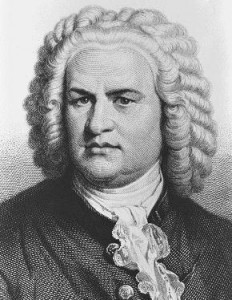After viewing The Wire, certainly the best television series I have ever seen (and perhaps the best ever made), I naturally sought out Generation Kill, from the same writing team – David Simons and Ed Burns. Also gripping and intelligent viewing, although (unlike The Wire), we only see one side’s view of the conflict. The series follows a US Marine platoon, Second Platoon of Bravo Company of the 1st Reconnaissance Battalion, 1st Marine Regiment, as they invade Iraq in March-April 2003. Like Band of Brothers, we come to know the platoon and its members very well, feeling joy at their wins, and sorrow at their losses. The TV series is based on an eponymous 2004 book by a journalist, Evan Wright, who was embedded with the platoon in this campaign.
The TV series led me, however, to read another book about this platoon, written by its commanding officer Lt. Nathaniel Fick (played in the series by actor Stark Sands). The book is superb! Fick writes extremely well, intelligently and evocatively, of his training and his battle experiences. His prose style is direct and uncluttered, without being a parody of itself (as is, say, Hemingway’s). His writing is remarkably smooth, gliding along, and this aspect reminded me of Doris Lessing, on one of her good days. Fick clearly has a firm moral centre (perhaps an outcome of his Jesuit high school education), evident from his initial decision to apply to the military while still an undergraduate classics major at Dartmouth. Having felt a similarly-strong desire as an undergraduate to experience life at the hot gates, I empathized immensely with his description of himself at that time. Fick’s moral grounding is shown throughout the book, not only in the decisions he takes in battle, and his reflections on these decisions, but also in the way he refrains from naming those of his commanding officers whom he does not respect. He also shows enormous loyalty to the men he commanded.
And Fick’s experiences demonstrate again that no organization, not even military forces, can succeed for very long when commands are only obeyed mindlessly. Successfully execution of commands requires intelligent dialogue between commanders and recipients, in a process of argumentation, to ensure that uttered commands are actionable, appropriate, feasible, effective, consistent, ethical and advisable. Consequently, the most interesting features of the book for me were the descriptions of decision-making, descriptions often implicit. Officers and non-officers, it seems, are drilled, through hours of rote learning, in the checklists and guiding principles necessary for low-level, tactical decision-making, so that these decisions can be automatic. Only after these mindless drills are second nature are trainee officers led to reflect on the wider (strategic and ethical) aspects of decisions, of decision-making and of actions. I wonder to what extent such an approach would work in business, where most decision-making, even the most ordinary and tactical, is acquired through direct experience and not usually taught as drills. Mainly this is because we lack codification of low-level decision-making, although strong fmcg companies such as Mars or Unilever come closest to codification of tactical decision-making.
Fick’s frequent frustrations with the commands issued to him seem to arise because these commands often ignore basic tactical constraints (such as the area of impact of weapons or the direction of firing of weapons), and because they often seem to be driven by a concern for appearances over substantive outcomes. In contrast to this frustration, one of Fick’s commanding heroes is Major Richard Whitmer, whose unorthodox managerial style and keen intelligence is well described. A military force able to accommodate such a style is to be admired, so I hope it is not a reflection on the USMC that Whitmer appears to have spent the years since the Iraq invasion running a marine recruitment office. Next time that I’m CEO of a Fortune 500 company, I’ll actively try to recruit Whitmer and Fick, since they are both clearly superb managers.
I was also struck by how little the troops on the ground in Iraq knew of the larger, strategic picture. Fick’s team relied on broadcasts from the BBC World Service on a personal, non-military-issue transister radio to learn what was happening as they invaded Iraq. We who were not involved in the war also relied on the BBC, particularly Mark Urban’s fascinating daily strategic analyses on BBC TV’s Newsnight. Were we remote viewers better informed than those in the ground in Iraq? Quite possibly.
Nathaniel Fick now works for a defence think tank, the Center for a New American Security. A 2006 speech he gave at the Pritzer Military Library in Chicago can be seen here. A seminar talk to Johns Hopkins University’s series on Rethinking the Future Nature of Competition and Conflict can be found here (scroll down to 2006-01-25). And here is Fick’s take on recent war poetry.
References:
K. Atkinson et al. [2008]: Command dialogues. In: I. Rahwan and P. Moraitis (Editors): Proceedings of the Fifth International Workshop on Argumentation in Multi-Agent Systems (ArgMAS 2008), AAMAS 2008, Lisbon, Portugal.
Nathaniel Fick [2005]: One Bullet Away: The Making of a Marine Officer. London, UK: Phoenix.
Evan Wright [2004]: Generation Kill. Putnam.

